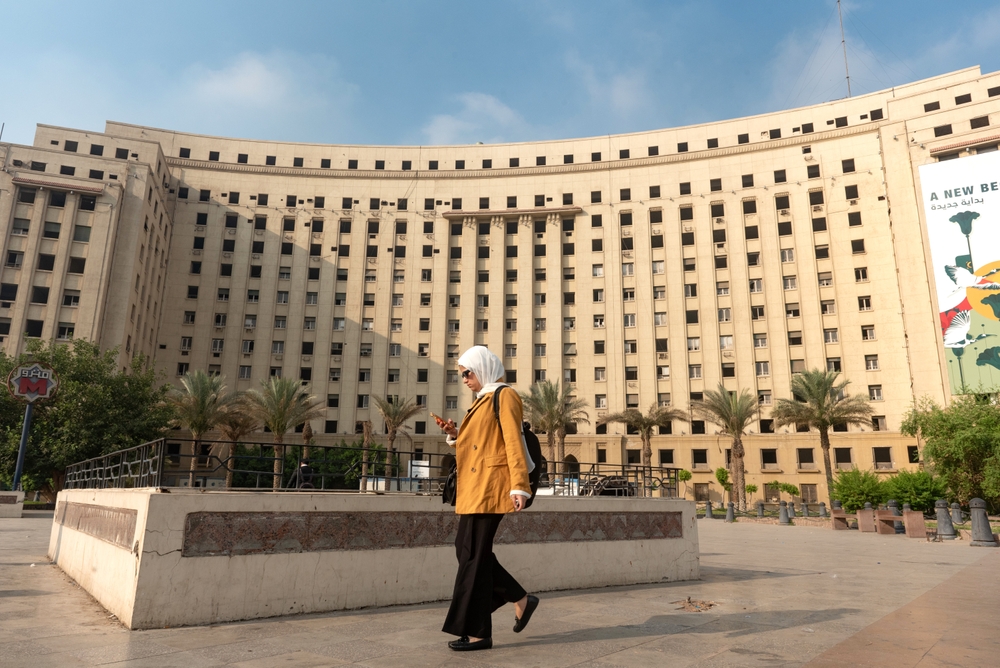Understanding Egypt’s Digital Landscape: Key Insights for Development Professionals
As Egypt rapidly ascends as a digital powerhouse in the Middle East and North Africa (MENA) region, its journey offers lessons for development professionals navigating the evolving landscape of technology and innovation. With 75% mobile internet penetration, Egyptians are more connected than ever. For Egyptian youth, who number over 100 million, this means shopping online using digital payment methods, enrolling in information and communications technology (ICT) university programs, and founding numerous tech startups.
A concerted government-led digitalization initiative and a flourishing private sector in the digital ecosystem makes the country a prime ICT hub for the MENA region. However, this digital revolution is accompanied by significant challenges and opportunities. Understanding these dynamics is essential to engaging with or contributing to Egypt’s digital evolution. This blog explores key aspects of Egypt’s digital landscape and outlines critical areas for improvement.

Developing and expanding the country’s digital infrastructure to transform Egypt’s economy, government, and workforce, is a top priority for the country under Egypt Vision 2030 and USAID’s Digital Strategy. USAID’s Egypt Digital Ecosystem Country Assessment (DECA) details the current digital landscape, priorities in the country, and opportunities for improvement.
Three Essential Aspects of Egypt’s Digital Landscape
- While Egypt has reached a high mobile internet penetration rate of 75%, affordable broadband access for education, government services, and commercial purposes are available to less than 40% of total households.
- Egypt’s digital startup ecosystem is relatively mature. In 2023, Egypt ranked first in North Africa and ninth in the MENA region under the Global Startup Ecosystem Index, an annual index that ranks 1,000 cities and 100 countries globally. The most prominent subsectors in the startup ecosystem are e-commerce, fintech, and health technologies. Egypt’s vibrant tech startup ecosystem, which includes investors, accelerators, incubators, mentors, and other resources, is largely concentrated in Greater Cairo.
- In 2022, the Digital Egypt e-platform was officially launched to provide web-based access to all governmental services. It currently offers more than 130 services online, including food rations, vehicle inquiries, notary services, and social insurance. A mobile app for the Digital Egypt Portal is also forthcoming.
Key Challenges and Growth Opportunities
- Affordability is a major constraint to bridging the usage divide in Egypt. The Internet Inclusion Index 2022 ranked Egypt 57th out of 100 countries, placing it in the lower half of the index. Egypt’s overall low ranking was primarily attributed to the country’s poor performance in affordability and relevance. As part of a presidential program called Decent Life, the ICT ministry is working to provide comprehensive services and infrastructure for all 4,500 Egyptian rural villages—establishing a fiber optic network to interconnect buildings within these villages.
- The current macroeconomic climate—with inflation, a significantly devalued Egyptian pound, and currency uncertainty reducing foreign investment—makes securing financing a challenge for Egyptian startups. While Egypt attracted more international investors than any other MENA country in 2023, most of these funds flow to a handful of tech companies and are not distributed across various companies and sectors. An updated regulatory environment for digital infrastructure and services could spur foreign investment, improve service delivery, and increase competition.
- Women are underrepresented among startup founders—accounting for only 12.5% of startup founders, although they number about half of all enrollees in ICT university programs. Besides challenges common to all startups, female Egyptian entrepreneurs face additional hurdles in starting up and maintaining their businesses within a male-dominated society and the restricted social structure in the country. However, 30% of startups have at least one female founder and more work remains to be done to improve digital literacy overall and overcome the gender digital divide.
To learn more, read the Egypt DECA here: https://www.usaid.gov/digital-development/egypt-deca
This article is written by Maliha Khan.
Responses